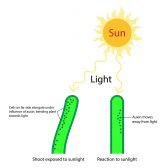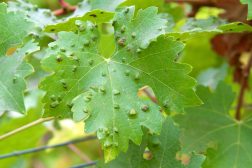Definition
noun
(botany) The normal shedding of a senescent plant part or organ (e.g. old leaf or ripe fruit)
(zoology) The intentional separation of a body part, such as the separation of a tail or autotomy, usually as a protective evading mechanism against predators
(mycology) The separation of a fungal spore
(cell biology) The act or process of separation of daughter cells during cytokinesis
(general) The act or process of cutting off
Supplement
In botany, abscission is the normal separation of a plant part or organ. It occurs to separate a plant part or organ that may no longer be necessary. For instance, leaf abscission is the normal shedding of an old leaf at the base of the petiole such as that occurs during autumn. This is believed to be a mechanism of the plant to conserve water or nutrients necessary for growth and photosynthetic potential. It is usually cued by senescence. Apart from it, though, leaf abscission involving young leaves may also occur due to leaf diseases, infestation or damage. This response is believed to confer protection to the plant as it decreases the chances of further infestation with the removal of an infested plant part. Another instance of abscission is the fruit drop. Plant hormones such as abscisic acid, auxin, and ethylene have been implicated as the main regulators of abscission.
Word origin: Latin ab (away) + scindere (to cut)
See also:
Related term(s):




